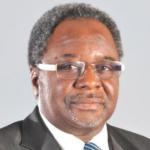THE NIGERIAN NATIONAL COMMITTEE OF THE WORLD ENERGY COUNCIL (NNC-WEC)
BACKGROUND
World Energy Council (WEC) is a global multi-energy and non-profit organization registered in the United Kingdom (UK). It is dedicated to promoting the sustainable supply and use of energy for the greatest benefit of all. Founded in 1923, WEC is an official UN-accredited non-governmental organization and strategic partner with other leading energy related organizations.
With the approval of Nigeria’s membership of WEC by the Council on the 6th day of April 1960, Nigerian National Committee was born.
VISION
The goal of the Committee is to ensure adequate and dependable quantities of fuel and energy in diverse forms, which are essential for improving the Nation’s economy, security and standard of living.
MISSION
This is by supporting the development of policies and plan programmes for the judicious exploitation and conservation, where necessary, as well as efficient and environmentally sound utilization of the nation’s energy resources.
OBJECTIVES OF THE NNC-WEC
The NNC-WEC has the following objectives:
- To participate in the activities of the World Energy Council.
- To consider, with particular reference to the situation in Nigeria, any matter which may from time to time be referred to it by WEC and likewise to consider such other matters falling within the scope of the objectives of WEC as may, from time to time, be referred to the Committee either by an appropriate arm of the government or by any member of the Committee.
- To render such advice as desirable to the Federal Government and its agencies towards the formulation and implementation of National Energy Policies and Plans.
WHAT DOES NNC-WEC DO
NNC-WEC activities cover a comprehensive range of energy related issues and all types of energy – coal, oil, natural gas, nuclear and renewable.
The focal areas of interest include: Medium and Long Term Energy Projections, Market Restructuring, Energy Efficiency, Environment and Energy, Energy Systems Financing, Energy Pricing and Subsidies, Energy Poverty, Ethics Benchmarking and Standards, Use of New Technologies, Energy Issues in developed, transitional and developed countries.
NNC-WEC also produces authoritative reports, analyses, research, case studies, policy and strategy recommendations for key decision makers.

Prof. Abubakar S. Sambo
Prof Abubakar Sani Sambo is the Chairman of the Nigerian Member Committee of the World Energy Council (WEC). He was WEC’s Vice Chair for Africa from November 2007 to October 2013. Prof Sambo was the Director-General of the Energy Commission of Nigeria for two terms of eight years from January 2005 to December 2012. He served as the Vice-Chancellor of Abubakar Tafawa Bela-wa University from April 1995 to April 2004. In July 2011 Prof Sambo was named as the Special Adviser to the President of Nigeria on Energy. He has worked extensively on renewable energy utilisation as well as on planning energy systems in Nigeria and has published more than 200 articles in journals, conference proceedings and technical reports. Professor Sambo was the Nigerian Representative at the International Renewable Energy Agency (IRENA) from 2009 to 2012. He is a fellow of nine professional associations: Nigerian Academy of Science, Nigerian Academy of Engineering, Nigerian Society of Engineers, Solar Energy Society of Nigeria, Nigerian Institution of Mechanical Engineers, Nigerian Association of Energy Economists, Renewable and Alternative Energy Society of Nigeria, Nigerian Institute of Management and the Energy Institute of the United Kingdom. He is the recipient of two national honours: the National Productivity Order of Merit (NPOM) and the Officer of the Order of the Niger (OON). Prof Sambo, who was duly registered by COREN in 1984 (R.2479), has a 1979 First Class Honours degree from Ahmadu Bello University, Zaria and a 1983 Doctor of Philosophy degree from the University of Sussex, UK, both in Mechanical Engineering. He was born in Zaria City on 31st July, 1955. He completed his primary school education at Capital School Kaduna in 1968. He is happily married and has four children

Dr. Abdussalam O. Yusuf
Secretary

Dr. Ismaila Haliru Zarma
Assistant Secretary

Mrs. Uzo Azubike
Treasurer

Abbas I. Musa
Future Energy Leaders (FEL) Coordinator
